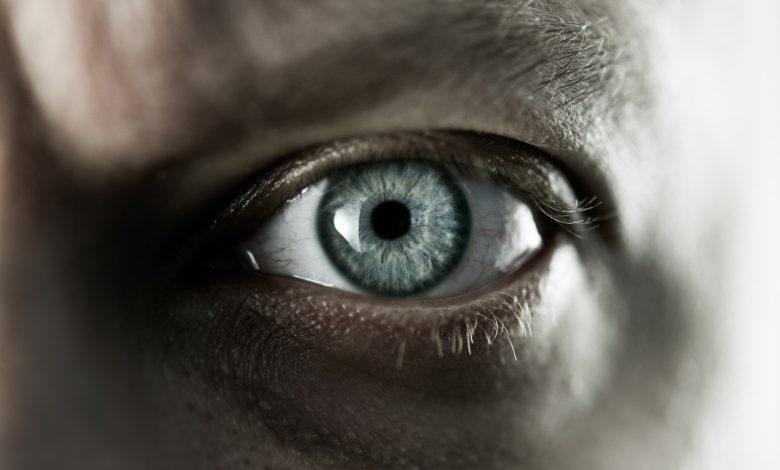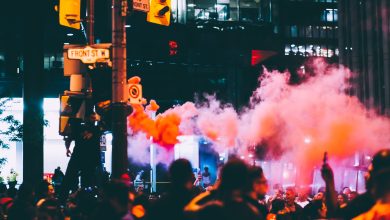1984: A Chilling Warning of A Hopeless Society

After many long months, I have finally gotten around to finishing 1984, and might I just say, this book is astonishing. No wonder it’s considered invaluable reading for the conservative mind. A story following an everyday man (Winston Smith) living in a socialist empire known as Oceania, the novel documents his critical thoughts towards the tyranny and the spiraling consequences that come from the action. It’s stark, terrifying, calculated, completely hopeless, and yet, the hope that can be found within the story lies in the fact that such a society does not exist thus far in reality. It is a reflection of post-war anxiety in the late ’40s and a harsh warning for those tempted by the idea of a socialist utopia.
I have a variety of thoughts on many aspects of the story and how it pertains to our current world. However, I will advise that my analysis will contain spoilers for the novel, so I recommend you read forward only if you’ve completed the novel or don’t care to be spoiled. You have been advised.
“Never again will you be capable of ordinary human feeling. Everything will be dead inside you. Never again will you be capable of love, or friendship, or joy of living, or laughter, or curiosity, or courage, or integrity. You will be hollow. We shall squeeze you empty, and then we shall fill you with ourselves.”
The first thing that struck me as I thought over my reading experience was just how somber the story was as a whole. This novel doesn’t have a main character with an invaluable attribute that allows them to rise above their community. Winston Smith is an ordinary fellow; he’s middle-aged, has aches and sores, lives his life as mundanely as everyone else, and even his blaspheming thoughts towards The Party are not unique – many before him have had the same thoughts, as Winston finds out when he comes into contact with an alleged Brotherhood member who gives him a book created to inform anti-Ingsoc ideology. Furthermore, there is no conflict that calls the character to action and become better. Winston knew that his critical thoughts towards The Party would eventually cause his death, and he had accepted that fate; it was only a matter of when it took place. The only action he did take had no real effect and did not change his trajectory whatsoever. Finally, there is no resolution in which the main character makes a positive change in his dynamic, whether it be within their community or only themselves. Eventually, what Winston predicts comes to pass; he is arrested for his thoughtcrimes, his mistress, Julia, is taken from him, and he is tortured senseless. By the end of the story, Winston’s will has been so broken, his mind so ravaged, his heart so twisted, that he returns to civilian life completely brainwashed. He begins to find interest and joy in Oceania’s useless war efforts, he practices the thought patterns of Doublethink and Crimestop, and worst of all, he develops an admiration for Big Brother. There is no doubt he will die and have no positive effect towards the fight against The Party.
There is no hope for Winston, his companions, or his personal goals. He will die and be erased from existence, and his fight against The Party will never truly come to fruition, as the collective knowledge within the institution has thought through every possible scenario and found a solution for it. The Party will reign on for eternity and humanity will continue to willfully accept suffering and call it mercy. Quite a jolly thought.
“You had to live—did live, from habit that became instinct—in the assumption that every sound you made was overheard, and, except in darkness, every moment scrutinized.”
In relation to the collective knowledge of the institution, another thing I recognized in my time of reflection is just how cunning and relentless The Party is. The story makes it very apparent that with them, no stone is left unturned. Nearly everything is constantly monitored via video or audio capture; every movement and expression made is analyzed, every mumble or passing comment criticized. Even in the event that those don’t suffice, citizens are systemically instructed to report each other to the authorities in the event that someone displays questionable behavior. Unless you display blind, unwavering loyalty to The Party and Big Brother, you are at risk. Winston’s case is a perfect example of this; despite taking extensive precautions to find refuge from surveillance and meeting with only the most trustworthy of his colleagues, he was found and arrested by the Thought Police thanks to an unforeseen audio device hidden within a small cottage.
What I find to be more so interesting about The Party’s philosophy on offenses is how they distinguish and eliminate opposition. They care about crimes, but they care even more about the thoughts that may lead to it. A man who shows full loyalty to Ingsoc in everyday life would be quickly put under arrest if they, for example, didn’t fully partake in patriotic assemblies or whispered a questionable remark in their sleep. None of these actions are remarkably reprehensible, but they show a lack of fierce devotion, which is something The Party requires. Lack of passion could be in correlation with disagreement with Ingsoc ideology, something that could lead to a crime against the regime. Such a thing cannot be tolerated.
Furthermore, in a similar manner, The Party prohibits the creation of martyrs; any they find to be guilty of Thoughtcrime, especially those who directly question Ingsoc, are not allowed to die without these thoughts being expunged and replaced. Whether it requires merciless torture, breaking of the will, hours of questioning, and destruction of arguments, The Party will transform a criminal into an upstanding citizen, not just in their actions, but their thoughts as well. There’s no way to fight back against it – every argument, every fallacy, and every appeal has been previously considered and refuted. In this way, the regime always remains the victor, leaving none to be avenged. To take it even a step further, The Party will often release these newly reformed citizens back into the world, leaving them to live out a time of blind loyalty, before killing them after a few years, further sealing their victory over the dissenters. This is what I speculate happened to Winston after the events of 1984, as I’m sure many other readers have hypothesized as well.
As I thought about this idea of a lack of martyrdom, I came to a bit of a dilemma: How would a faithful Christian survive in such a society? The Party commands that Big Brother is viewed as a god, and any individuals who think otherwise are to be vaporized. Christians have dealt with persecution and martyrdom for millennia at this point, but they have never had the option of taking their faith to death revoked (to my knowledge). The Party does exactly that; if found, Party members will relentlessly torture and abuse until a person’s mind is hollow and malleable. They would make martyrdom physically, emotionally, and mentally impossible. What would be the response to this? Would God allow His children to persist through torture for the rest of their lives? Would He forgive those who relinquished their faith? Would He grant His followers the embrace of death to escape a lifetime of excruciating suffering? Would He strengthen/numb His children? Is this even an idea worth thinking about? Would such a society ever even exist in God’s creation? I leave this to the discretion of the reader.
“Not merely the validity of experience, but the very existence of external reality was tacitly denied by their philosophy. The heresy of heresies was common sense.”
Something in particular that I found to be most interesting about The Party’s strategy in subjugation was the thought practice known as Doublethink. Before fully understanding it, I found it to be somewhat of an unrealistic idea that I couldn’t see being used in a real-world scenario. However, as I reached the third act of the story, in which the intricacies of the process were better explained, I began to see Doublethink everywhere in our society. The basic concept involves an individual presenting a blatant lie (that could easily be assumed as false by themselves with prior knowledge), and then choosing to perceive it as truth, out of duty to The Party. The idea in itself is a dilemma, as within the realm of The Party, recognizing it for what it is would be thoughtcrime, however, practice is essential. When rations are lowered but the media is changed to make it appear as if it’s the same or increased, citizens must use Doublethink to accept this created fact. There is no record to disprove it – all things are quickly destroyed and recreated by The Party. Only an individual’s memory holds the key to the past. However, viewing the past as one may perceive it from previous information could be seen as thoughtcrime and lead to torture, years in a labor camp, or death. Therefore, doublethink must be used. Doublethink is optimal for The Party as it expunges opposition – someone not practicing it can be easily identified and neutralized. Moreover, this negates the general feeling of oppression within the Populus, as the thought process not only forces them to accept the fallacy as fact, but it truly convinces them of their fallacy out of necessity. It is essentially an institutionalized form of insanity.
Whether you look at the brutality of The Party, the enigma of Doublethink, or the nihilistic mindset created by the setting, one thing is for sure; 1984 is a truly frightening novel. However, the most terrifying aspect of the story is its reflection of reality, especially in the modern era. The same forms of censorship, propaganda, and brainwashing that are found in this fictional book from decades ago are now commonplace. Big Brother has manifested in the form of large social media platforms such as Facebook, Instagram, Youtube, and Twitter; they have the ability to censor and propagandize any information they choose with little to no accountability, and the record shows they’ve already done this countless times. Doublethink has manifested in political affiliations, where viewpoints have become so polarized that neither side will yield to another’s; they make themselves blind to obvious facts and choose to believe in sheer fallacy for the sake of their party, whether it be the Liberals justifying and praising Biden’s withdrawal from Kabul or the QAnon followers who prophesy Trump’s triumphant return to office. Even the telescreens and constant surveillance have manifested in the form of our phones, computers, and other electronic devices, which we have so willingly allowed to record and monitor our every action.
So while this novel was something of a wake-up call, I still find myself to be at peace through it. The reality of 1984 may look to be upon us, but we are nowhere near without hope. History remains intact, objective truth can still be found, and we live in a nation founded upon the moral principles of the Constitution. So long as there are those willing to stand firm, call out the doublethink, and educate those in need of understanding, we have a chance at avoiding Ingsoc reincarnated.
Overall, 1984 is a phenomenal read from beginning to end. Although born out of anxiety towards Soviet influence, the novel has remained incredibly relevant to this day and provides a glimpse into a nation devoured by its own lust for power. I highly recommend it to anyone who would be willing to read it.


